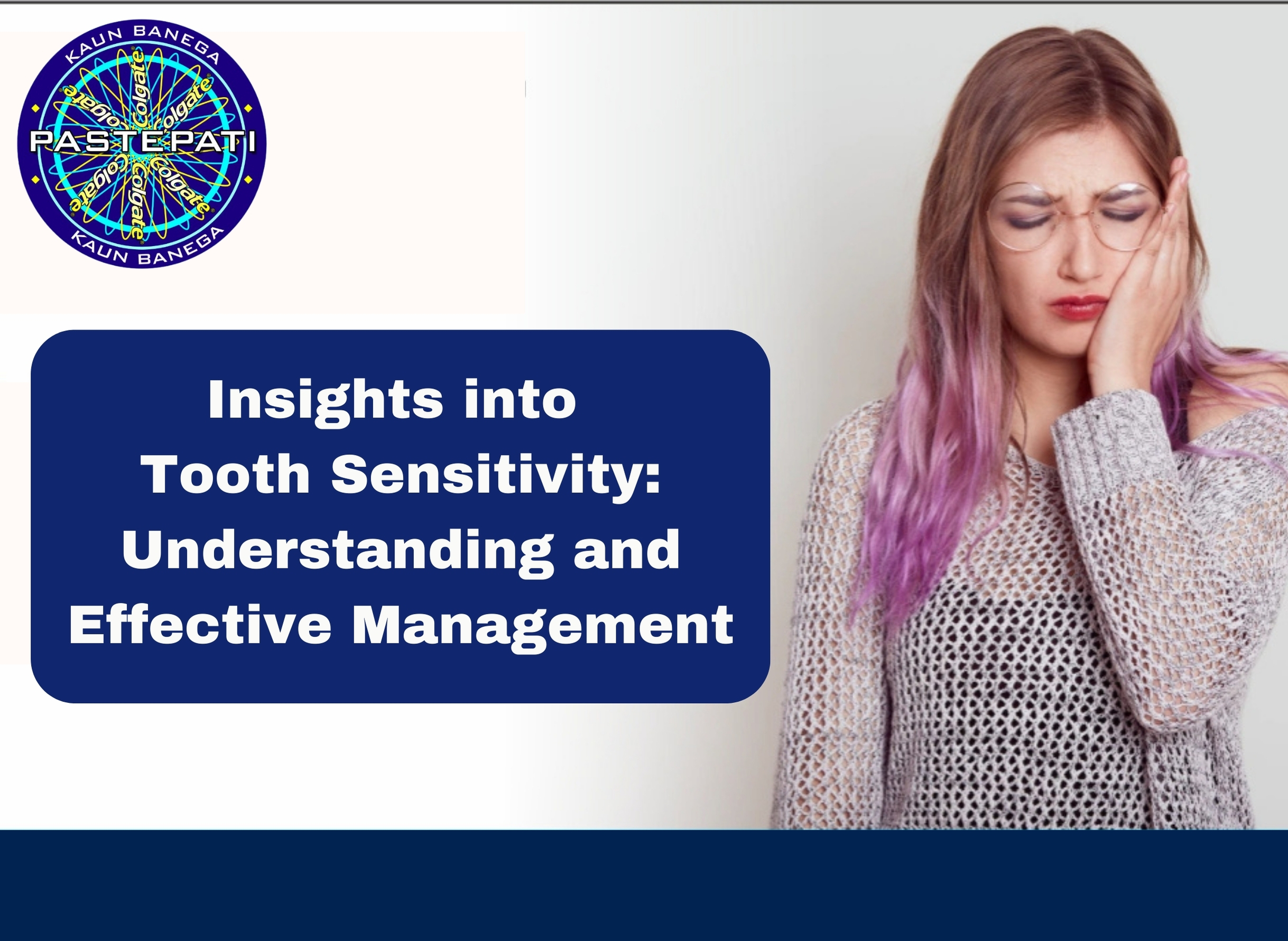A frequent dental issue that affects people of all ages is tooth sensitivity. At Kaun Banega Pastepasti Dental Clinic in Ludhiana, we recognize the significance of addressing this issue to ensure our patients’ optimal oral health. This article provides a thorough understanding of the causes of tooth sensitivity and explores effective management strategies for a more comfortable and pain-free oral experience.
1. Unmasking the Culprits: Common Causes of Tooth Sensitivity
Tooth sensitivity can be attributed to various factors, with enamel erosion, gum recession, and dental caries being the primary culprits. Enamel erosion occurs when the protective outer layer of the tooth wears away, exposing the sensitive dentin beneath. Gum recession exposes the tooth roots, making them susceptible to sensitivity, while dental caries contribute to nerve irritation and discomfort.
Read: Choosing the Best Toothbrush and Toothpaste: A Complete Guide
2. Enamel Erosion: Understanding the Process
Enamel erosion, often fueled by acidic foods and beverages, is a leading cause of tooth sensitivity. The enamel, once damaged, leaves the underlying dentin vulnerable to external stimuli. It’s essential to be mindful of acidic food consumption and adopt oral hygiene practices that minimize enamel erosion.
3. Gum Recession: The Root of Sensitivity
Gum recession occurs when the gum tissue pulls away from the tooth, exposing the tooth roots. Improper brushing techniques, periodontal issues, and age can contribute to this condition. Addressing the root causes and adopting proper oral hygiene practices are crucial in preventing and managing gum recession-related sensitivity.
4. Dental Caries: A Source of Discomfort
Tooth decay, commonly known as dental caries, can lead to sensitivity. The decay process involves the breakdown of tooth structure, exposing the nerves to external stimuli. Maintaining good oral hygiene, regular dental check-ups, and a cavity-preventive diet are essential in preventing dental caries and subsequent sensitivity.
Read: Caring for Your Child’s Teeth: Tips for Parents
5. Remedial Approaches: Managing Tooth Sensitivity
Managing tooth sensitivity involves both professional interventions and at-home care. Desensitizing toothpaste, fluoride treatments, and maintaining a tooth-friendly diet are effective strategies. Desensitizing toothpaste works by blocking nerve pathways, and reducing sensitivity. Fluoride treatments strengthen enamel, offering protection against external stimuli.
6. Desensitizing Toothpaste: A Shield for Sensitive Teeth
Desensitizing toothpaste contains compounds like potassium nitrate or strontium chloride, which help alleviate sensitivity. Using this toothpaste as part of a regular oral hygiene routine can provide relief by blocking the nerve signals that cause sensitivity.
7. Fluoride Treatments: Strengthening Enamel
Fluoride is a mineral that plays a vital role in strengthening tooth enamel. Professional fluoride treatments, as well as the use of fluoride toothpaste, contribute to enamel fortification. Regular application of fluoride aids in reducing sensitivity and preventing further enamel erosion.
Read: Dental Health Tips: Quick Guides for a Radiant Smile
8. Adopting a Tooth-Friendly Diet: Nutritional Strategies
A tooth-friendly diet is instrumental in preventing and managing tooth sensitivity. Consuming foods rich in calcium, phosphorus, and vitamin D promotes strong enamel. Avoiding excessive acidic and sugary foods contributes to overall oral health and minimizes sensitivity.
9. Addressing Lifestyle Factors: A Holistic Approach
Beyond specific dental conditions, lifestyle factors can contribute to tooth sensitivity. Habits such as teeth grinding (bruxism) and using abrasive toothbrushes may exacerbate sensitivity. At Kaun Banega Pastepasti Dental Clinic in Ludhiana, our experts delve into the impact of these lifestyle factors and provide tailored guidance to mitigate their effects on tooth sensitivity.
10. Seeking Professional Guidance: The Role of Regular Dental Check-ups
Regular dental check-ups play a pivotal role in preventing and addressing tooth sensitivity. Our team at Kaun Banega Pastepasti Dental Clinic emphasizes the importance of routine examinations to identify and address potential issues early on. Professional cleanings, examinations, and personalized care plans are integral components of our commitment to ensuring your lasting oral health and comfort.
Read: Interactive Activities for Tiny Teeth: Nurturing Healthy Smiles
Conclusion
Understanding the causes of tooth sensitivity and adopting proactive measures can significantly improve oral comfort. By addressing enamel erosion, gum recession, and dental caries, individuals can manage sensitivity effectively. At Kaun Banega Pastepasti Dental Clinic in Ludhiana, we emphasize the importance of incorporating desensitizing toothpaste, fluoride treatments, and a tooth-friendly diet into daily oral care routines to provide a comprehensive approach to alleviating discomfort and promoting long-term dental health. If you experience persistent sensitivity, consulting with our experienced dental professionals is advisable for personalized guidance and treatment.




